A second openly transgender person has signed up to the US military
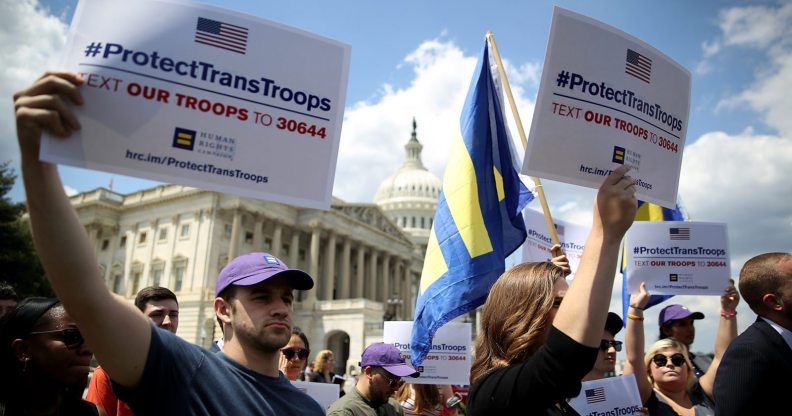
(Photo by Justin Sullivan/Getty Images)
The second openly transgender person has enlisted in the US military, despite multiple lawsuits over President Trump’s potential ban on trans people serving.
Earlier this week an official from the US military confirmed to ABC that an openly transgender service person had successfully enlisted in the Navy on March 1.
The unnamed trans person is the second person to enlist after the Pentagon was forced to comply with a federal court ruling which tossed out President Trump’s proposed ban on trans troops.
Despite the court order successfully allowing new trans recruits, different court actions have halted the implementation of the ban on current transgender service members.
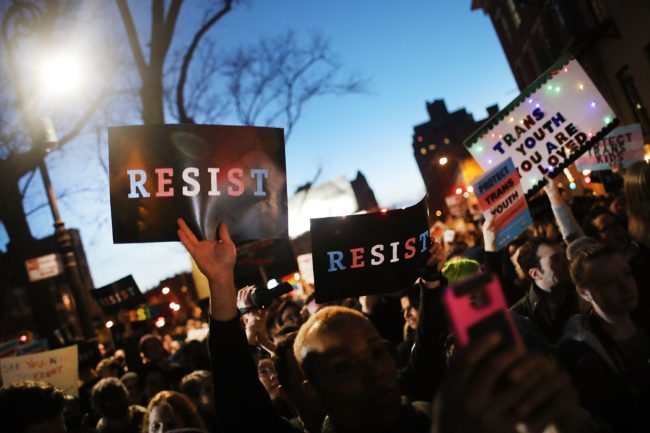
(Photo by Spencer Platt/Getty Images)
Transgender individuals were permitted to enlist in the US military from January 1st.
The first trans person to enlist during the Trump presidency did so earlier this year and is expected to enter their basic training in the next three months.
It is believed that since January 1, around 15 to 20 trans people have begun the process to join the US military.
Trans people are still subject to a large list of specific new guidelines, revealed as part of a Pentagon memo outlining how trans people in the military are to be treated in areas including bathrooms and changing rooms.
These state that applicants will only be allowed to join if a medical provider can confirm that the individual has been stable without “clinically significant distress or impairment in social, occupational, or other important areas of functioning” for 18 months.
They must also certify that an applicant “has completed all medical treatment associated with the applicant’s gender transition, the applicant has been stable in the preferred gender for 18 months, and if presently receiving cross-sex hormone therapy post-gender transition, the individual has been stable on such hormones for 18 months.”
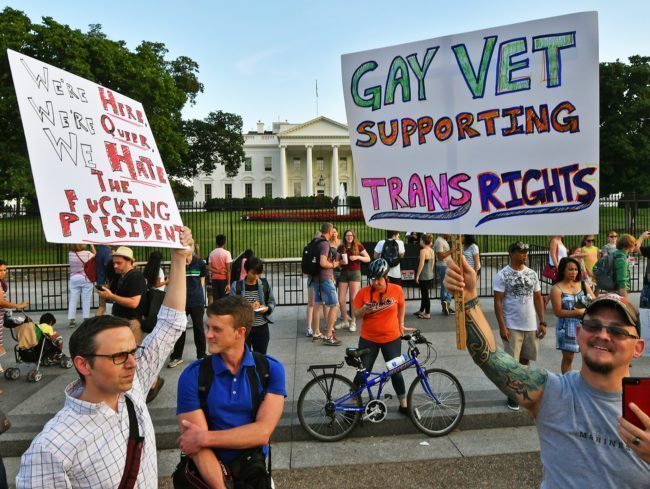
(Getty)
Those who have undergone gender confirmation surgery must have a medical provider certify that “a period of 18 months has elapsed since the date of the most recent surgery, no functional limitations or complications persist, and no additional surgeries are required.”
Non-binary applicants, however, will be forced to select their sex at birth on official documents, as the military does not yet have a third gender option
The Trump Administration’s final policy decision on transgender servicemembers is reportedly expected at the end of March.
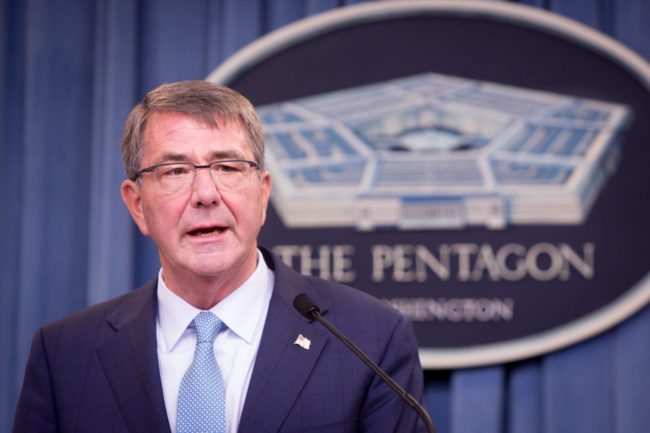
Secretary of Defense Ash Carter (Getty)
Related: First openly transgender armed forces officer celebrated in this stunning photograph
Four separate lawsuits moved through courts across America to challenge the order which was first revealed by Trump on Twitter in the summer.
Trump wrote that trans individuals would not be permitted to enter the US military “in any capacity” because of the “tremendous medical costs and disruption.”
Despite being legally allowed to enlist, a trans man was denied entry to the Air Force in January of this year due to his gender identity.
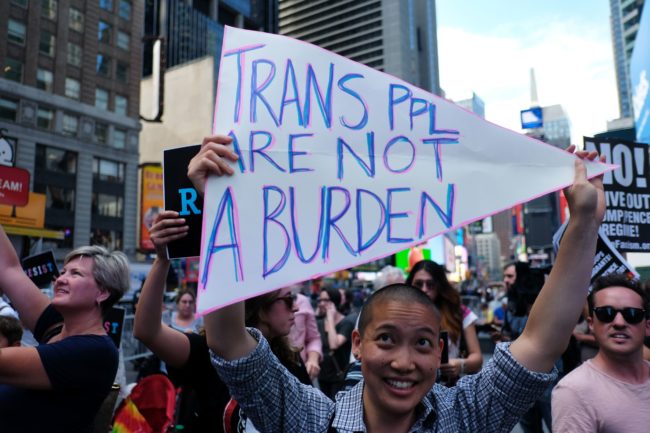
(Getty)
Parker, who did not disclose his full name, said that when contacting recruiters in Washington, DC he faced rejection.
“I was pretty appalled,” Parker said. “When I contacted the Air Force Reserves, I was hopeful that all the roadblocks would be levelled and I could be processed. However, to my dismay, they were not.”
The Pentagon and The Air Force Reserves have condemned the rejection of Parker and insisted that transgender Americans are being enlisted given that they meet the criteria.
The incident was described as an “error” by Col. Bruce Bender, a spokesperson for Air Force Reserve Command.

